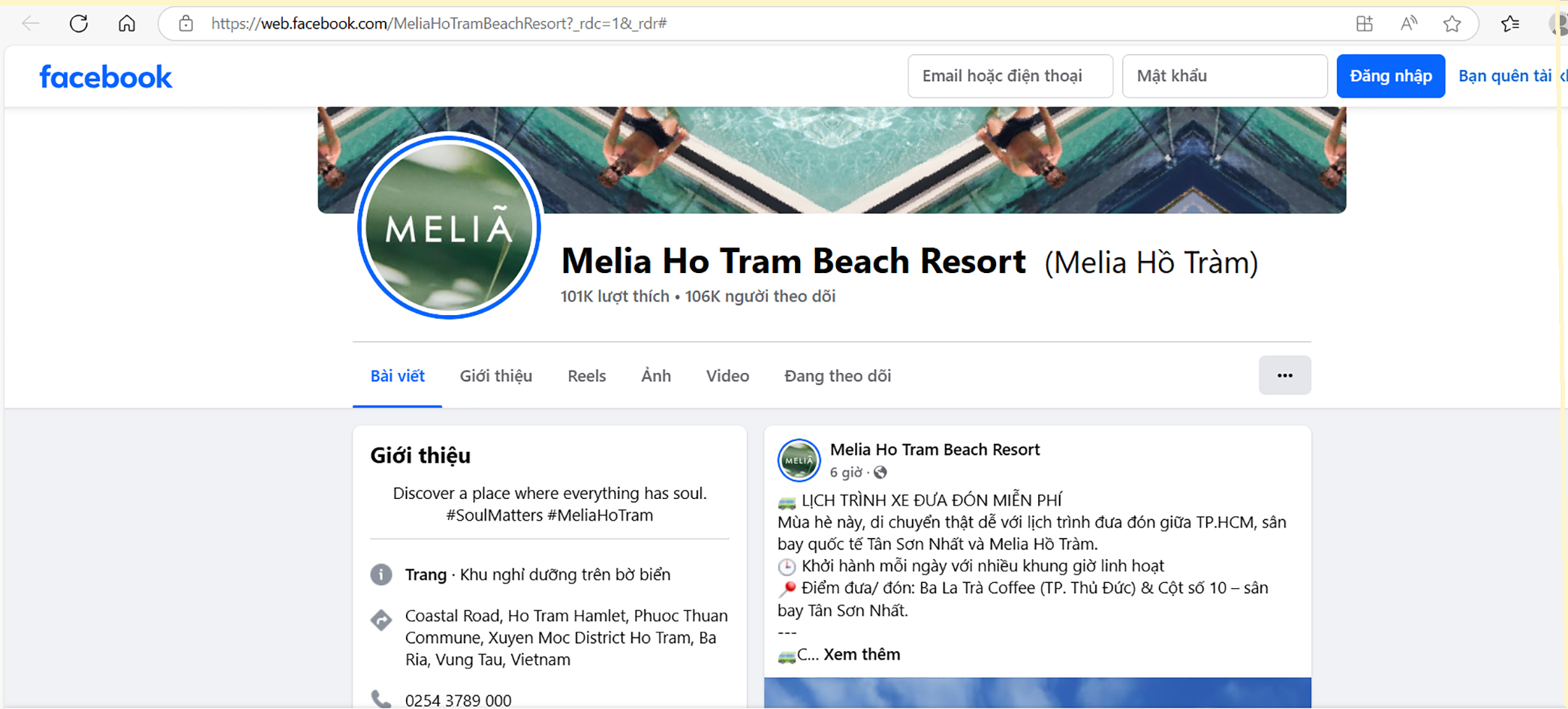 |
| The real Facebook page of Meliá Ho Tram Beach Resort and the fake Facebook page (X). Only Meliá Ho Tram Beach Resort staff can distinguish the fake page because the displayed phone number is incorrect. |
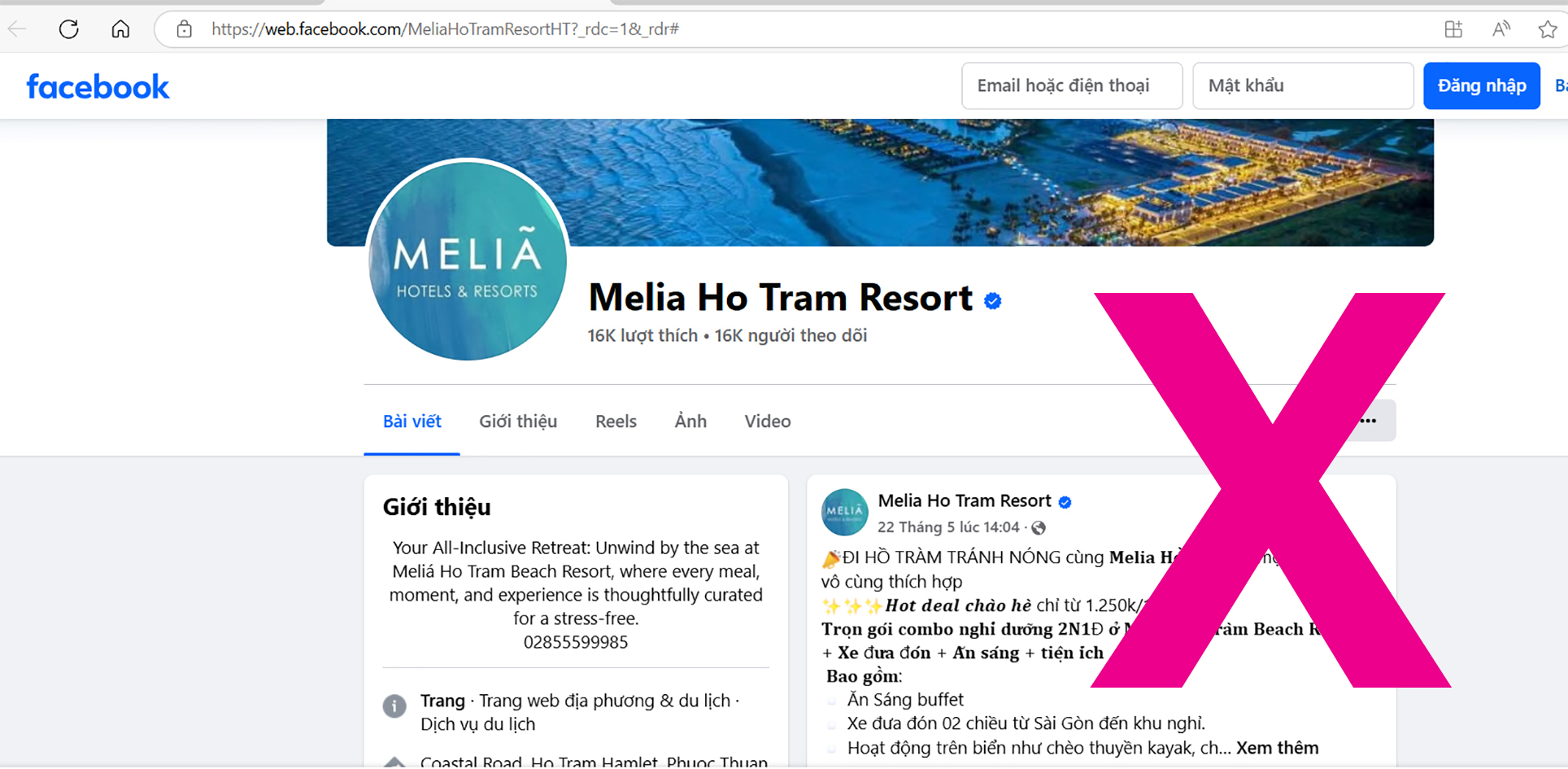 |
Fake Facebook Octopus Tentacles
In a letter sent to the Ba Ria-Vung Tau Newspaper, a representative from Meliá Ho Tram Beach Resort stated that the phenomenon of fake resort Facebook pages has been appearing since 2024 and shows no signs of stopping. These fake Facebook pages also have a blue verification badge (indicating an official page) and high traffic. Even the resort's network administrators find it difficult to detect them because whatever the real Facebook page posts, the fake page immediately copies it. Furthermore, the fake Facebook pages even run advertisements and have attractive interfaces to attract viewers.
“We have been continuously submitting evidence of fake pages to Facebook’s management. As of early May, we had blocked 45 fake Facebook pages. However, there are still 25 more fake pages active. Tourism is in its busiest season of the year, and in addition to protecting ourselves with warnings on our resort’s promotional tools, we have also sent letters to relevant government agencies hoping for support and solutions,” shared Ms. Mai Le Thi Thao Nguyen, Marketing Director of Meliá Ho Tram Beach Resort.
Many large, established resorts and hotels have been targeted by fake Facebook pages used to scam customers into booking rooms. The tactics are similar, copying the official pages exactly, including warnings about online scams. Users simply click on the fake page, and they are immediately bombarded with messages offering services and attractive promotions. Customers believe them and transfer deposits, falling right into the trap.
According to a representative from Le Palmier Ho Tram, incomplete statistics show that over 500 million VND has been lost to fraudulent bookings made through fake Facebook accounts in the past two years.
Increase media coverage and warnings.
At the end of May 2025, the Department of Culture, Sports and Tourism chaired a meeting with resorts that had reported experiencing the aforementioned issues. Representatives from the Cyber Security and High-Tech Crime Prevention Department (Provincial Police), the Department of Science and Technology, and the Provincial Tourism Association attended the meeting.
During the meeting, representatives from the resorts stated that Facebook impersonation is rampant again during the peak summer tourist season. The resorts have taken various measures to increase vigilance for guests, such as pinning warning posts and instructing guests on how to identify fake pages prominently on the resort's digital platforms (Zalo, Facebook, TikTok, website).
"Although online shopping is being promoted due to its speed and convenience, we have decided not to accept bookings via Facebook during this period. Instead, we are directing guests to visit the resort's website and contact the hotline to inquire about services, in order to minimize the risk of falling victim to scams," said Ms. Dong Thi Thu Hong, Head of Business and Marketing at Emerald Ho Tram Resort.
According to Mr. Do Phuoc Trung, Deputy Director of the Department of Culture, Sports and Tourism, the situation of impersonating fanpages and websites of reputable tourist accommodation establishments has become increasingly complex, not only causing direct harm to consumers but also affecting the reputation of service establishments and the image of the locality. Therefore, it is urgently necessary to coordinate synchronously and decisively among state management agencies, the Provincial Police, the Tourism Association, the media, and the tourism business community to protect legitimate rights, prevent and minimize risks for consumers, and enhance the image of professional and friendly tourism.
Specifically, the focus is on warning and raising awareness among tourists. The Department of Culture, Sports and Tourism will send information about cases of impersonation and fraud targeting tourists when booking rooms through social media, along with warnings and guidance on identifying online scams, to media agencies inside and outside the province, requesting their support in disseminating the information so that tourists have a greater chance of accessing complete and official information. The Department will also compile a list of star-rated tourist accommodation establishments, emphasizing building a reputation, and including links, phone numbers, email addresses, etc., to be published on the Department's website and the Provincial Tourism Association's website to increase the search and access to reputable service providers for tourists.
Tourism businesses need to continue proactively protecting themselves and the legitimate rights of their customers; continuously post warnings about fake Facebook pages on their digital information pages; strengthen network management, promptly detect fake pages and continuously report fake pages to the managing company requesting that the page be blocked; and assist customers in reporting to the nearest police station when they detect signs of fraud or misappropriation of deposit money.
"The Department is also discussing with the Provincial Tourism Association about issuing warnings via SMS messages on mobile networks, and at the same time, proposing to the Ministry of Culture, Sports and Tourism and the National Tourism Administration about the methods and tactics used in these scams so that a nationwide warning can be issued," Mr. Do Phuoc Trung added.
Text and photos: DANG KHOA
Source: https://baobariavungtau.com.vn/phap-luat/202506/ma-tran-lua-dat-phong-vao-cao-diem-du-lich-he-1044422/























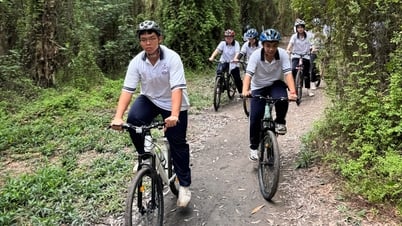




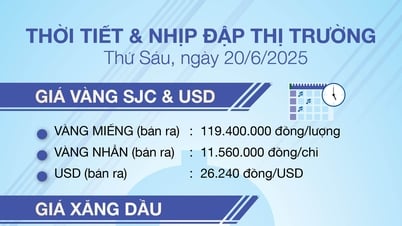






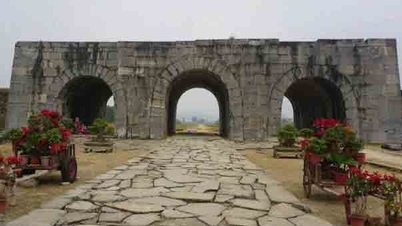




































































Comment (0)